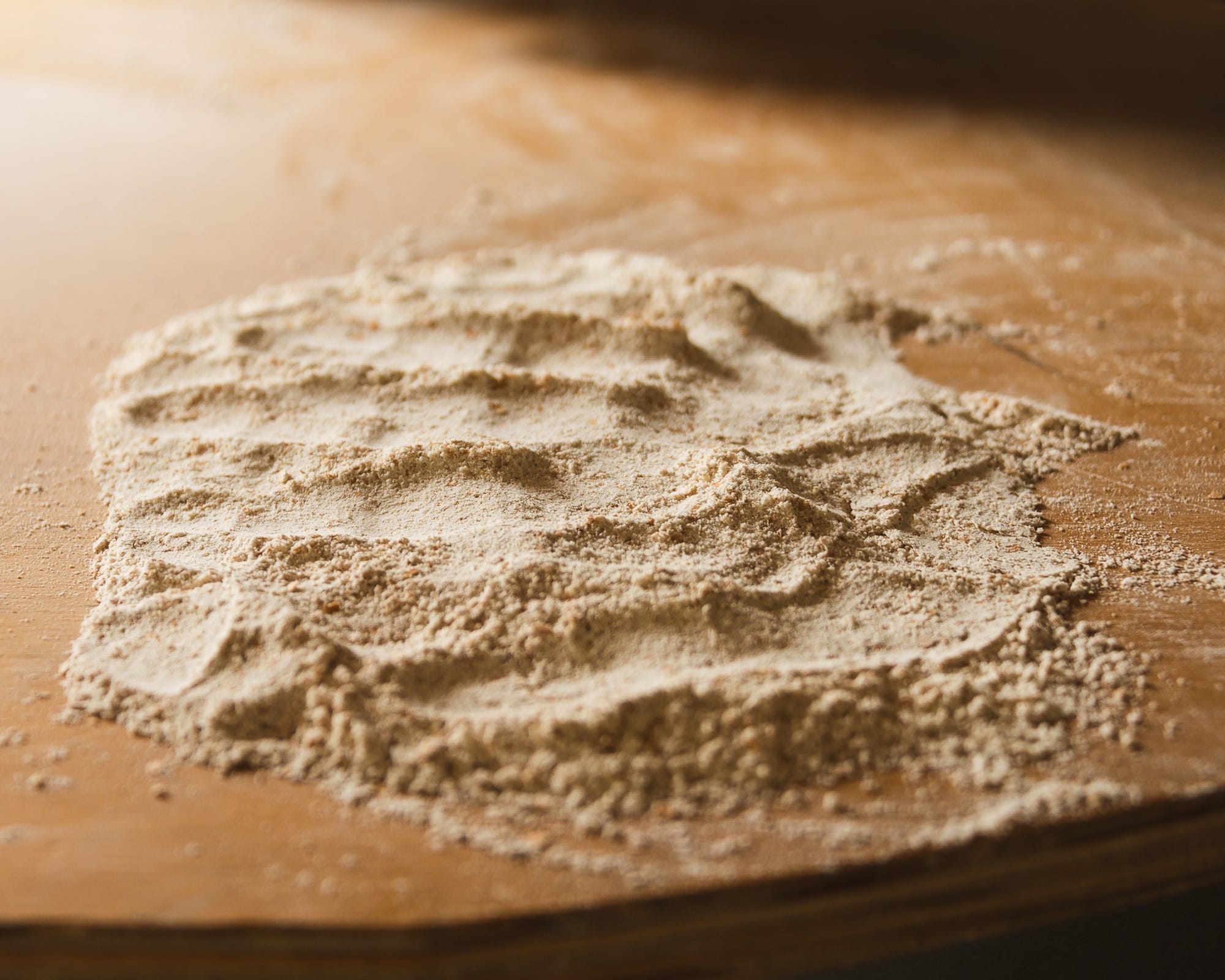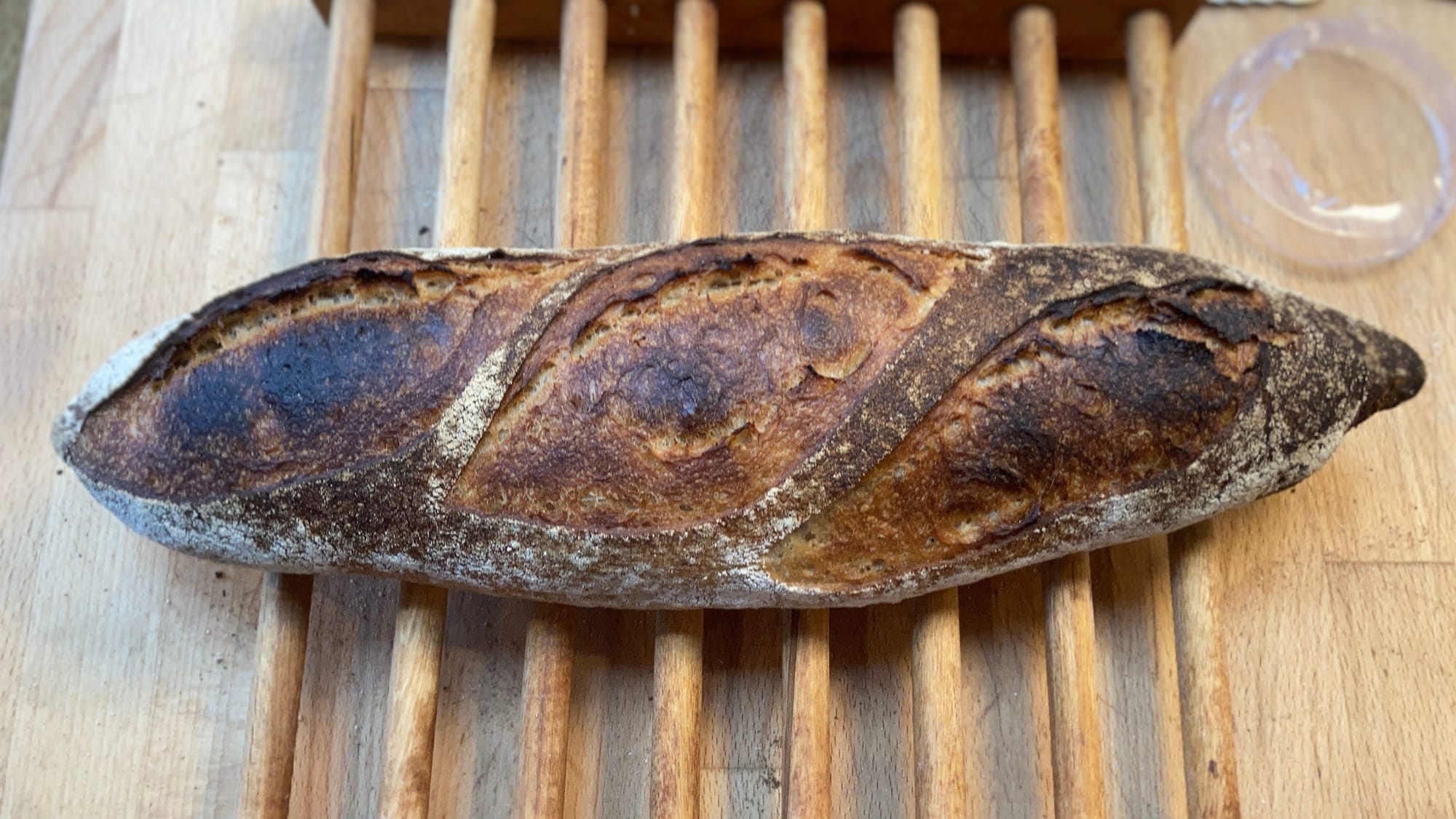Ethical flour

So I sort of stepped in it recently, incurring the ire of a baker and writer whom I admire very much, when I answered writer Alicia Kennedy’s call for recipe developers to discuss their complicated feelings around ingredient sourcing. (I won’t name the baker in question, because we had a civil discussion after it all went down, and I believe we are friendly again.)
Alicia introduced her newsletter in this way (emphasis mine):
I’ve been thinking about ingredients because to write about food is to write about ingredients. To write recipes is to implicitly or explicitly suggest ingredients to one’s audience. And, yes, I saw a hip food person on Instagram recently say the only sugar to use in one of their recipes was Domino brand. The way my heart sinks when I see something like this, especially after passing by one of Puerto Rico’s biggest abandoned sugar mills just two days prior. (Consider this line from Sidney Mintz’s Worker in the Cane: A Puerto Rican Life History, first published in 1960: “This area of Puerto Rico had caught the full economic impact of the United States Occupation as early as 1900. It was very poor and economically under the thumb of a single multimillion-dollar United States corporation.”)
The possible world we lost, the possible world we killed, so that corporations could profit. The exploitative world we made instead. (Consider Kara Walker’s “A Subtlety.”) But as pastry chef and host of the podcast Lavender Language Adrian Ramirez tells me, “Being tied to a particular brand of sugar for their ethicality is brilliant if you have the resources to do so. But if the best you can afford is the local supermarket’s own brand of sugar, why should that person not be able to bake? That’s so tedious and elitist.”
This is something that has been on my mind for about as long as I’ve been writing recipes for myself, rather than for other venues, where the question of ingredient sourcing was out of my hands. (And was not of much concern to those who were in charge.)
Now that I publish my own recipes, I’m often torn between wanting to recommend flours that are—to use Adrian’s term—more ethical, versus easy-to-find and more-affordable commodity flours.
Here’s the section of the (slightly longer) email I wrote that Alicia ended up using:
Andrew Janjigian of Wordloaf, a bread newsletter, says, “There are two major problems with acting upon a desire to see people use more ‘sustainable’ flours: availability and consistency.” Though he’s usually writing a recipe that is just flour and water, such simplicity still requires him to consider these questions. “As much as I’d like to teach people to be able to work with fancy local flours,” he says, “I’d also like to give them the skills and tools to make bread out of whatever flours they can find or afford.”
In a perfect world? “The sorts of flours I’d like to see everyone use would be a) organic (for all the obvious reasons), and b) local/regional, to eliminate the environmental impact of transportation and to foster more resiliency in our food economies. But wheat can’t be grown everywhere, and even where it does grow happily, it requires care and skill (and good growing seasons) to produce wheat that can be made into flour that will make good bread. (And it requires a miller who knows how to mill and refine it appropriately as well.)”
The baker I mentioned above took issue with my use of the word “fancy” to refer to these flours, and I can see their point. Fancy implies that the added cost of these flours relative to commodity brands is entirely a question of luxury, rather than a reflection of the underlying expenses of production. Which is not at all what I meant. What I clearly should have used instead of fancy was “ethical”.
For a flour to be ethical, it must be made from grain that is grown in a sustainable and environmentally-friendly way; that the farmer who grew it be given a fair price for their grain; and that the workers who farmed it are treated fairly and given a living wage. Ditto for the miller who converted that grain into flour, who should be fairly compensated and able to pay their employees a living wage. All of these requirements obviously add greatly to the cost of flour.
And those aren’t even the only costs involved in producing a flour that you’d actually want to use. For a flour to be good for bread—meaning that it has not just great flavor but also a consistent and reliable texture and gluten content—it requires a high-quality mill, one that is expensive to purchase and maintain, along with great care and skill on the part of people doing the milling, sifting, and blending. This is especially true when (as is often the case) the quality of the grain varies from one season to the next.
That’s why commodity flours cost at least half as much as ethical flours do: because the companies that produce them do not usually take into account the ethics of their production, and because the grain and flours are produced using economies of scale that small farmers and millers cannot take advantage of.
If spending $10 for a 5-pound bag of flour is out of your budget, then suggesting you need to use them is indeed, as Adrian Ramirez said, elitist. Some people do not have a choice in what products they cook with, and good bread should not be out of reach just because of this. One of my goals is to present recipes that anyone can use, no matter the limits of their resources.

But chances are most of you here can afford to use ethical flours in your baking, and I should be encouraging you to do so if that’s the case. Especially when I myself use ethical flours in my own baking all the time.
And if I’m being 100% honest, I have to admit that the other reason I haven’t (yet) called for ethical flours is that—unlike commodity flours of which there are but a few recognizable, easily-sourced name brands—it is extremely challenging to craft a recipe around a flour for which the quality and gluten content is an unknown quantity. King Arthur all-purpose flour is going to be the same from Maine to California and everywhere in between, while something called “bread” flour could vary drastically in gluten content and performance from one mill to the next.
Or that used to be the case, at least. The truth is, the caliber of flours you can get from smaller millers these days is better than ever, thanks to the availability of affordable, expertly-designed stone mills, and a robust, ongoing dialogue between grain breeders, farmers, millers, and bakers.

My ethical flour comes from Ground Up Grain in Hadley, MA. Here’s how they describe their mission (beyond crafting great flour):
The goal of Ground Up is to look back in another ten years and see more acres of grain, more thriving farms, more fresh and nutritious flour - all important signs of a more sustainable and resilient food system.
The breads I make with Ground Up flours are everything I want from my loaves: lovely in color and full of flavor, even when the only ingredients are flour, water, and salt. And they are all the more satisfying to make and eat, knowing that the flour is made with the ethics of its production top-of-mind.
I do have to adjust the hydration of my formulas to make them work with these flours, so it’s not a simple gram-for-gram swap. But it’s not all that hard to make the adjustment either. So going forward, I’d like to build in recommendations on how to utilize these sorts of flours in my recipes, and to encourage you explicitly to seek them out and start to incorporate them into your own breads.
Toward that end, I’d like to compile a resource list of regional millers to recommend to others. If you have a favorite miller (local or otherwise), please link to them in the comments below, and I’ll add them to the list.
And, more importantly, what do you think about the call to use ethical flours in your own baking?
—Andrew
EDIT:
I want to make it clear I know that not all commodity/supermarket flours are identical in their “ethicality” or lack thereof. King Arthur Baking and Bob’s Red Mill are employee-owned corporations with a commitment to using sustainable, non-GMO grains, and a diverse and equitable workforce, which makes them the obvious choice when choosing a supermarket brand flour. And you all already know how much I stan for King Arthur flours, which remains my favorite nationwide flour brand.





Member discussion